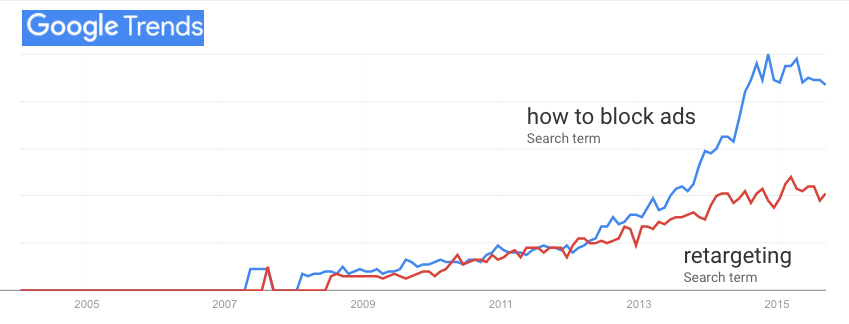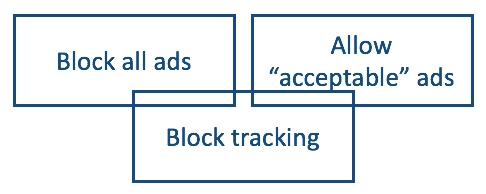I’ve owned a lot of bad cars in my decades. But some I’ve loved, at least when they were on the road. One was the 1965 Peugeot 404 wagon whose interior you see above, occupied by family dog Christy, guarding the infant seat next to her. You’ll note that the hood is open, because I was working on it at the time, which was constantly while I owned it.
I shot that photo in early 1974, not long after arriving at our new home in Graham, North Carolina. The trip down from our old home in far northern New Jersey was one of the most arduous I’ve ever taken, with frequent stops to fix whatever went wrong along the way, which was plenty.
Trouble started when a big hunk of rusted floor fell away beneath my feet, so I could see the New Jersey Turnpike whizzing by down there, while worrying that the driver’s seat itself might fall to the moving pavement, and my ass with it.
The floor had rusted because rainwater would gather in the air vents between the far side of the windshield and the dashboard, and suddenly splat down on one’s feet, and the floor, soon as the car began to move. (The floor was prepared for this with a drainage system of tubes laminated between layers of metal, meant to carry downward whatever water fell on top. Great foresight, I suppose. But less prepared was the metal itself, which was determined to rust.)
Later a can attached to the exhaust manifold blew to pieces so sound and exhaust straight from the engine sounded like a machine gun and could be heard to the horizons in all directions, and echoed into the cabin off the pavement through the new hole in the floor. I am sure that the hearing loss I have now began right then.
I replaced the lost metal with an emptied V8 juice can that I filled with steel wool for percussive exhaust damping, and fastened into place with baling wire that I carried just in case of, well, anything. I also always carried a large toolbox, because you never know. If you owned a cheap used car back in those days, you had to be ready for anything.
The car did have its appeals, some of which were detailed by coincidence a month ago by Raphael Orlove in Jalopnik, calling this very model the best wagon he’s ever driven. His reasons were correct—for a working car. The best feature was a cargo area was so far beyond capacious that I once loaded a large office desk into it with room to spare. It also had double shocks on the rear axle, to help handle the load, plus other arcane graces meant for heavy use, such as a device in the brake fluid line to the rear axle that kept the brakes from locking up when both rear wheels were spinning but off the ground. This, I was told, was for drivers on rough dirt roads in Africa.
While the Peugeot 404 was not as weird in its time as the Citroën DS or 2CV (both of which my friend Julius called “triumphs of French genius over French engineering”), it was still weird as shit in some remarkably impractical ways.
For example, screw-on hubcaps. These meant no tire machine could handle changing a tire, and you had to do the job by hand with tire irons and a sledgehammer. I carried those too. For unknown reasons, Peugeot also also hid spark plugs way down inside the valve cover, and fed them electricity through a spring inside a bakelite sleeve that was easy to break and would malfunction even if they weren’t broken.
I could go on, but all that stuff is beside my point, which is that this car was, while I had it, mine. I could fix it myself, or take it to a mechanic friendly to the car’s oddities. While some design features were odd or crazy, there were no mysteries about how the car worked, or how to fix or replace its parts. More importantly, it contained no means for reporting its behavior or use back to Peugeot, or to anybody.
It’s very different today. That difference is nicely unpacked in A Fight Over the Right to Repair Cars Turns Ugly, by @Aarian Marshall in Wired. At issue are right-to-repair laws, such as the one currently raising a fuss in Massachusetts.
See, all of us and our mechanics had a right to repair our own cars for most of the time since automobiles first hit the road. But cars in recent years have become digital as well as mechanical beings. One good thing about this is that lots of helpful diagnostics can be revealed. One bad thing is that many of those diagnostics are highly proprietary to the carmakers, as the cars themselves become so vertically integrated that only dealers can repair them.
But there is hope. Reports Aarian,
…today anyone can buy a tool that will plug into a car’s port, accessing diagnostic codes that clue them in to what’s wrong. Mechanics are able to purchase tools and subscriptions to manuals that guide them through repairs.
So for years, the right-to-repair movement has held up the automotive industry as the rare place where things were going right. Independent mechanics remain competitive: 70 percent of auto repairs happen at independent shops, according to the US trade association that represents them. Backyard tinkerers abound.
But new vehicles are now computers on wheels, gathering an estimated 25 gigabytes per hour of driving data—the equivalent of five HD movies. Automakers say that lots of this information isn’t useful to them and is discarded. But some—a vehicle’s location, how specific components are operating at a given moment—is anonymized and sent to the manufacturers; sensitive, personally identifying information like vehicle identification numbers are handled, automakers say, according to strict privacy principles.
These days, much of the data is transmitted wirelessly. So independent mechanics and right-to-repair proponents worry that automakers will stop sending vital repair information to the diagnostic ports. That would hamper the independents and lock customers into relationships with dealerships. Independent mechanics fear that automakers could potentially “block what they want” when an independent repairer tries to access a car’s technified guts, Glenn Wilder, the owner of an auto and tire repair shop in Scituate, Massachusetts, told lawmakers in 2020.
The fight could have national implications for not only the automotive industry but any gadget that transmits data to its manufacturer after a customer has paid money and walked away from the sales desk. “I think of it as ‘right to repair 2.0,’” says Kyle Wiens, a longtime right-to-repair advocate and the founder of iFixit, a website that offers tools and repair guides. “The auto world is farther along than the rest of the world is,” Wiens says. Independents “already have access to information and parts. Now they’re talking about data streams. But that doesn’t make the fight any less important.”
As Cory Doctorow put it two days ago in Agricultural right to repair law is a no-brainer, this issue is an extremely broad one that basically puts Big Car and Big Tech on one side and all the world’s gear owners and fixers on the other:
Now, there’s new federal agricultural Right to Repair bill, courtesy of Montana Senator Jon Tester, which will require Big Ag to supply manuals, spare parts and software access codes:
https://s3.documentcloud.org/documents/21194562/tester-bill.pdf
The legislation is very similar to the Massachusetts automotive Right to Repair ballot initiative that passed with a huge margin in 2020:
https://pluralistic.net/2020/09/03/rip-david-graeber/#rolling-surveillance-platforms
Both initiatives try to break the otherwise indomitable coalition of anti-repair companies, led by Apple, which destroyed dozens of R2R initiatives at the state level in 2018:
https://pluralistic.net/2021/02/02/euthanize-rentiers/#r2r
It’s a bet that there is more solidarity among tinkerers, fixers, makers and users of gadgets than there is among the different industries who depend on repair price-gouging. That is, it’s a bet that drivers will back farmers’ right to repair and vice-versa, but that Big Car won’t defend Big Ag.
The opposing side in the repair wars is on the ropes. Their position is getting harder and harder to maintain with a straight face. It helps that the Biden administration is incredibly hostile to that position:
https://pluralistic.net/2021/07/07/instrumentalism/#r2r
It’s no coincidence that this legislation dropped the same week as Aaron Perzanowski’s outstanding book “The Right to Repair” — R2R is an idea whose time has come to pass.
https://pluralistic.net/2022/01/29/planned-obsolescence/#r2r
[The next day…]
Cory just added this in a follow-up newsletter and post:
…remember computers are intrinsically universal. Even if manufacturers don’t cooperate with interop, we can still make new services and products that plug into their existing ones. We can do it with reverse-engineering, scraping, bots – a suite of tactics we call Adversarial Interoperability or Competitive Compatibility (AKA “comcom”):
https://www.eff.org/deeplinks/2019/10/adversarial-interoperability
These tactics have a long and honorable history, and have been a part of every tech giant’s own growth…
Read all three of those pieces. There is much to be optimistic about, especially once the fighting is mostly done, and companies have proven knowledge that free customers—and truly free markets—are more valuable than captive ones. That has been our position at ProjectVRM from the start. Perhaps, once #R2R and #comcom start paying off, we’ll finally have one of the proofs we’ve wanted all along.










